Solana, a blockchain protocol synonymous with speed, scalability, and decentralization, has emerged as a pioneering force in the world of cryptocurrency. With a focus on 400-millisecond block times, nearly 2,000 decentralized validator nodes, and eco-friendly practices, Solana has become a go-to choice for developers and investors. With a community exceeding 11.5 million active accounts and a total of 21.9 million minted NFTs, Solana is committed to achieving widespread adoption.. As more investors and enthusiasts join the Solana ecosystem, the importance of choosing a secure and reliable wallet for storing SOL coins becomes paramount. In this guide, we will explore the best wallets available for holding and managing your Solana assets.

A wallet is a tool that stores cryptographic keys, enabling users to send, receive, and manage ownership of cryptocurrencies. For Solana users looking to interact with SOL tokens, several wallet options exist, ranging from software choices like Phantom, Solflare, and MathWallet to hardware alternatives such as Ledger Nano S Plus. The Brave Wallet also integrates with Solana. Each wallet presents unique features, necessitating users to choose one that aligns with their specific requirements. As the Solana ecosystem evolves, selecting the right wallet becomes crucial for a secure and seamless experience.
What Are Solana Wallets?
Types of Solana wallets
- Hardware Wallets: Hardware wallets are physical devices that store your private keys offline, adding an extra layer of security by keeping them away from potential online threats. These wallets are considered one of the safest options for long-term storage of cryptocurrencies. Popular hardware wallets that support Solana include Ledger and Trezor.
- Software Wallets: Software wallets are applications or online platforms that store your private keys on a device connected to the internet. While convenient for regular transactions, they are generally considered less secure than hardware wallets. Software wallets can be further categorized into desktop wallets, mobile wallets, and web wallets.
Whether users prioritize security with a hardware wallet or convenience with a software wallet, the guide aids in evaluating options.
Now, let’s explore some of the best wallets for storing Solana coins in each category.
Software Wallets for Solana
1. OKX: Revolutionizing Crypto Trading and Web3 Integration
(Source: OKX | Solana)
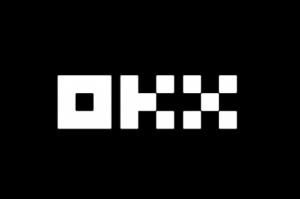
OKX is a cryptocurrency exchange, leading the digital asset industry with its diverse financial services and innovative features. Grounded in blockchain technology, the platform extends its reach to millions of users across more than 100 countries, demonstrating a global presence and widespread adoption.
Comprehensive Financial Services:
OKX distinguishes itself by offering a spectrum of financial services tailored to accommodate users at various levels of expertise. These services encompass:
- Spot Trading: Enabling users to engage in the conventional buying and selling of cryptocurrencies.
- Margin Trading: Providing the opportunity for traders to amplify potential returns through the use of borrowed funds.
- Futures Trading: Facilitating contracts for future asset transactions at predetermined prices.
- Options Trading: Granting users the flexibility to buy or sell assets at agreed-upon prices.
- Perpetual Swaps Trading: Resembling futures contracts but without fixed expiration dates.
- DeFi Services: Involving decentralized finance solutions to contribute to the expanding DeFi ecosystem.
- Lending: Facilitating the borrowing and lending of cryptocurrencies.
- Mining Services: Presumably supporting cryptocurrency mining activities.
Innovative Features:
OKX showcases innovation with features such as zero-fee quick conversion, seamless trading experiences devoid of slippage, and the ability to trade perpetual and expiry futures with leverage. The platform accommodates various trading strategies to cater to its diverse user base.
Web3 Wallet:
OKX introduces the OKX Wallet, a noncustodial, multichain digital asset storage and management tool. Users can set up this wallet through a browser extension or a mobile/web app, emphasizing security and user control over their assets.
Institutional Solutions:
OKX extends its services to institutional traders, offering a suite of powerful trading solutions. These include an OTC liquidity network, ultra-low latency API connectivity, and features designed to enhance capital efficiency and reduce risk.
Web3 Integration and Future Growth:
OKX actively promotes Web3 integration, empowering users to explore decentralized applications (DApps), decentralized exchanges, NFT marketplaces, and DeFi yield opportunities. The platform envisions users moving beyond traditional “HODLing” to actively earn through diverse crypto activities.
To get the OKX extension, click here.
2. Phantom Wallet: Navigating the Multichain Realm of DeFi
(Source:Phantom | Solana)
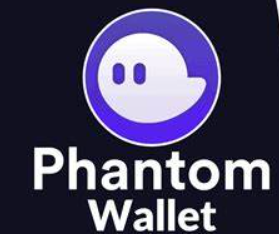
Phantom Wallet stands out as a guiding light in the decentralized finance (DeFi) landscape, offering users a secure and seamless entry into the multichain universe. Originating on the Solana blockchain, Phantom has transcended its initial roots to include support for Ethereum and Polygon networks. This analysis delves into the features, security measures, and overall user experience that characterize Phantom Wallet’s presence in the ever-evolving cryptocurrency landscape.
Phantom Wallet Overview:
Launched in 2021, Phantom Wallet initially focused on Solana, garnering support from over 40,000 beta testers. Its success led to significant funding, with a Series B round raising $109 million at a valuation of $1.2 billion, earning Phantom the unicorn status. Currently boasting over three million users, Phantom reflects rapid growth and widespread adoption.
Multichain Support:
Phantom Wallet’s strength lies in its multichain support, encompassing Solana, Ethereum, and Polygon networks. Users can effortlessly manage crypto assets, engage in decentralized applications (DApps), stake Solana tokens, and conduct token swaps—all within a unified platform. The addition of Ethereum and Polygon support strategically broadened Phantom’s user base and DApp accessibility.
Key Features of Phantom Wallet:
- Solana Staking: SOL token holders actively participate in the Solana network, earning rewards by delegating tokens to validators. Phantom recommends validators.app or StakeView.app for optimal options based on APY and commission rates.
- Token Swaps: Phantom Wallet enables in-app swaps for Ethereum, Polygon, and Solana networks, charging a flat 0.85% fee. The platform prioritizes optimal pricing for most swaps, enhancing the user experience.
- NFTs and Collectibles Storage: Phantom simplifies NFT storage, allowing users to group similar NFTs, manage collections, and access metadata like floor price and total unique holders. NFT support extends to various marketplaces, including OpenSea, Blur, LooksRare, and more.
- Ledger Integration: Phantom offers integration for Ledger hardware wallets, adding security for Solana, Ethereum, and Polygon. Although limited to Chrome, Brave, and Microsoft Edge, this feature enhances crypto holding security.
- Non-Custodial Security: Phantom Wallet’s non-custodial nature ensures users retain complete control over private keys and assets, ensuring autonomy and privacy. The platform’s code undergoes independent audits by Kudelski Security, with added security measures such as transaction previews and an open-source block list.
Phantom Wallet in Action:
- Token Swaps and Staking: Phantom’s in-app token swapper, introduced in June 2021, recorded over $1 billion in swap volume by October of the same year. Users can stake Solana tokens, potentially earning up to 9% APY, according to StakeView.
- NFT Market Access: Phantom’s NFT support simplifies connecting to multiple marketplaces, streamlining the selling and discovery of NFTs. The “Instant Sell” feature presents users with the best available bid.
- Ledger Hardware Wallet Integration: Phantom’s integration with Ledger hardware wallets provides an extra layer of security, allowing users to manage tokens securely across different networks.
To download click here.
3. Trust Wallet – Your Gateway to Secure and Decentralized Crypto Management
(Source: Trust Wallet | Solana)
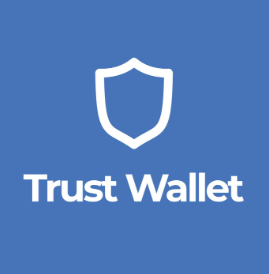
Trust Wallet stands out as a decentralized and user-controlled software wallet dedicated to securely managing cryptocurrency assets. The platform, with a focus on enhancing accessibility to the world of crypto, acts as a bridge connecting users to individual blockchains through their nodes. This design ensures users maintain full control over their funds and private keys, emphasizing genuine ownership.
Key Features:
- Decentralization: Trust Wallet operates as a non-custodial wallet, affirming user control over cryptocurrency assets. It refrains from holding or managing any crypto, highlighting the principle of true ownership.
- Access to DApps: In contrast to centralized wallets, Trust Wallet empowers users with access to decentralized applications (DApps), broadening their interaction within the decentralized finance ecosystem.
- No Personal Information Retention: Trust Wallet prioritizes user privacy by abstaining from collecting personal information. This commitment aligns with the decentralized finance philosophy.
- Multichain Support: Trust Wallet is distinguished as a multi-asset and multichain wallet, supporting over 4.5 million crypto assets across more than 70 blockchain networks. This versatility positions it as a comprehensive solution for various cryptocurrency-related activities.
How Trust Wallet Works:
Trust Wallet serves as a conduit to individual blockchains, enabling users to interact with their crypto assets without compromising control. It facilitates transactions such as buying, selling, and swapping crypto, as well as earning rewards and managing NFTs. The application is available on both mobile and desktop platforms, with download links provided exclusively from official sources to ensure user security.
Security Measures:
- Encryption: Trust Wallet employs industry-standard encryption to secure user wallets and the recovery phrase, fortifying overall security.
- User Responsibility: Users are encouraged to manage their assets with care, understanding that Trust Wallet does not directly convert crypto to fiat. Instead, users can transfer their crypto to exchanges supporting fiat conversion.
Buying and Cashing Out:
- Buy Crypto: Trust Wallet facilitates the purchase of cryptocurrencies using credit cards through integrated Partner Providers. Personal information is not collected by the app; instead, details are directly sent to the providers.
- Cashing Out: While Trust Wallet doesn’t directly convert crypto to fiat, users can transfer their crypto to exchanges supporting fiat conversion.
To know more and download click here.
4. Solflare:
(Source: Solflare | Solana)
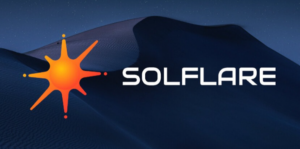
SolFlare emerges as a comprehensive web3 wallet, revolutionizing how users interact with the Solana blockchain. Offering a myriad of features ranging from buying and storing tokens to accessing Solana DeFi, SolFlare ensures security, speed, and user-friendly functionality.
Security at the Core:
-
- SolFlare pioneered Solana wallets, prioritizing user safety. Private keys are safeguarded using encrypted Keystore Files or Ledger Nano S/X hardware wallets.
- Transaction simulations provide users with a preview of outgoing transactions, reinforcing constant protection against potential risks.
Powerful Functionality for All:
-
- SolFlare caters to both newcomers and seasoned professionals, regularly introducing powerful features.
- Seamlessly connect to Solana decentralized applications (dApps), receive instant notifications, and navigate activity history effortlessly.
Transaction Flexibility:
-
- Easily buy, store, send, and swap tokens on both web and mobile platforms, ensuring a hassle-free transaction experience.
- Manage your NFT collection securely, checking floor prices, setting NFT profile pictures, and more.
Stake and Earn Effortlessly:
-
- SolFlare simplifies staking or liquid staking of Solana with just three clicks, allowing users to effortlessly participate in blockchain governance.
- Download SolFlare from the App Store or Play Store for lightning-fast transactions on the Solana blockchain.
Hardware Wallets for Solana
1.Ledger: Revolutionizing Crypto Security
(Source: Ledger | Solana)
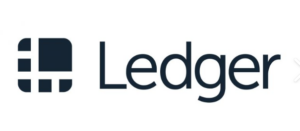
Ledger takes a pioneering role in the cryptocurrency security realm, presenting an array of hardware wallets that redefine how individuals secure and manage their digital assets. Among its flagship products, the Ledger Nano S emerges as a secure multi-currency hardware wallet, providing users with a robust and user-friendly solution for storing and managing cryptocurrencies.
Distinctive Features of Ledger Nano S:
- Cryptographic Secrets Protection: The Ledger Nano S prioritizes security with a secure chip that shields cryptographic secrets (private keys) from potential vulnerabilities in computers or smartphones.
- Multi-Currency Support: Supporting prominent cryptocurrencies like Bitcoin and Ethereum, Ledger Nano S caters to the diverse needs of the crypto community. Its open-source apps ensure smooth integration with various blockchain networks.
- Confirmation on Embedded Screen: Each transaction undergoes confirmation on the device’s built-in OLED display, enabling users to verify and authorize transactions with a simple tap on the side buttons.
- PIN Security Lock: The device includes a 4-digit PIN security lock, adding an extra layer of protection to thwart unauthorized access.
- Seed Generation and Recovery: Ledger Nano S simplifies onboarding with built-in seed generation and recovery, supporting BIP39 seeds with 12/18/24 words for straightforward backup and restoration.
- Firmware 1.2 Features: The latest firmware, version 1.2, unlocks advanced features like passphrase support for plausible deniability, alternative duress PIN, shuffle PIN option, token, and basic contract support for Ethereum, along with integration with services like GreenAddress and Greenbits.
Open Source and Developer-Friendly:
All apps running on the Ledger Nano S are open source, allowing users to audit, review, or contribute to the code. For developers, the Ledger Nano S provides opportunities to build custom apps, leveraging the Ledger Blue SDK for experimentation.
To know more about the types of Ledger wallets available click here.
2. Trezor Hardware Wallets
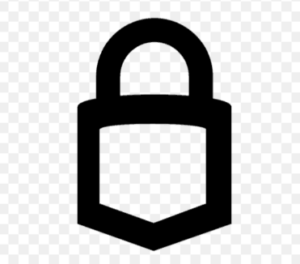
Expansion of Supported Tokens:
- Trezor, a renowned web3 hardware wallet provider, has expanded its support to include Solana (SOL) and Solana Program Library (SPL) tokens.
- This strategic move aims to address the increasing user demand for managing SOL and participating in the broader Solana ecosystem.
Enhanced Security Features:
- Trezor Safe 3, priced at $79, is equipped with a specialized chip for advanced security.
- Model T, priced at $179, features a user-friendly touchscreen interface.
- Both devices are designed to support over 8,000 coins and tokens, providing users with a secure platform for transactions.
Securely Using Solana with Trezor:
- Launch the Trezor Suite desktop application or utilize the web version.
- Connect and unlock your Trezor device.
- Navigate to My Accounts, click the plus (+) sign, and select + Activate more coins.
- Choose Solana from the list and click “Find my Solana accounts.”
By following these straightforward steps, Trezor users can seamlessly integrate Solana into their secure hardware wallets, empowering them to receive, buy, and trade SOL with confidence.
To know more click here.
Easy comparison between the top Solana wallets
| Aspect | Ledger Nano S (Hardware) | Trezor (Hardware) | OKX Wallet (Software) | Phantom Wallet (Software) | Trust Wallet (Software) | Solflare (Software) |
|---|---|---|---|---|---|---|
| Security | Secure chip, confirmation screen, PIN lock | Specialized chips, private key control, PIN lock | Non-custodial, Web3 integration, privacy-focused | Non-custodial, audited, Ledger integration, transaction previews, open-source block list | Non-custodial, industry-standard encryption, user privacy | Pioneered Solana wallets, encrypted Keystore Files, transaction simulations |
| Multichain Support | Supports multiple cryptocurrencies | Supports over 8,000 coins and tokens | Noncustodial, multichain digital asset storage | Multichain support (Solana, Ethereum, Polygon), broad user base, NFT management | Supports over 4.5 million crypto assets across 70 blockchains | Dedicated to Solana blockchain, various functionalities within ecosystem |
| User-Friendliness | OLED display, straightforward | Touchscreen interface (Model T), seed recovery | User-friendly interface, Web3 wallet for DApps | Seamless entry into multichain universe, integrates with Ledger, user-friendly interface | Designed for accessibility, user-friendly bridge to DApps | User-friendly for newcomers and professionals, introduces powerful features |
| Features/Functionality | Confirmation screen, PIN lock, multi-currency | Advanced features (passphrase support, token, etc.) | Comprehensive financial services, Web3 integration | Multichain support, Solana staking, token swaps, NFT management | Decentralized, DApp access, no personal info retention, multichain support | Powerful functionality, transaction flexibility, NFT management |
| Community/Support | Established community, forums | Active community, resources and support | Part of OKX exchange ecosystem, global support, institutional solutions | Rapidly growing community (over 3 million users), active support channels | Well-established community, continuous support, focus on user privacy | Pioneered Solana wallets, growing user base, live chat support, education resources |
Conclusion
In summary, the Solana ecosystem offers a diverse range of wallets tailored to the varied needs of cryptocurrency users. Hardware options such as Ledger Nano S and Trezor prioritize security for long-term storage, while software solutions like OKX, Phantom Wallet, Trust Wallet, and SolFlare offer convenience and adaptability.
The Solana community, exceeding 11.5 million accounts and 21.9 million minted NFTs, continues to thrive. Choosing between hardware and software wallets depends on individual preferences, security considerations, and usage intentions. Whether users opt for the strong security of hardware wallets or the convenience of software wallets, they contribute to Solana’s growth—a journey marked by innovation, inclusivity, and a steadfast commitment to decentralized finance.
Princy Agarwal, a postgraduate in English from Delhi University, writes content for Tricky Finance, where they simplify complex financial topics for readers. With a knack for clear communication, Princy’s work helps make finance understandable and accessible to all.




